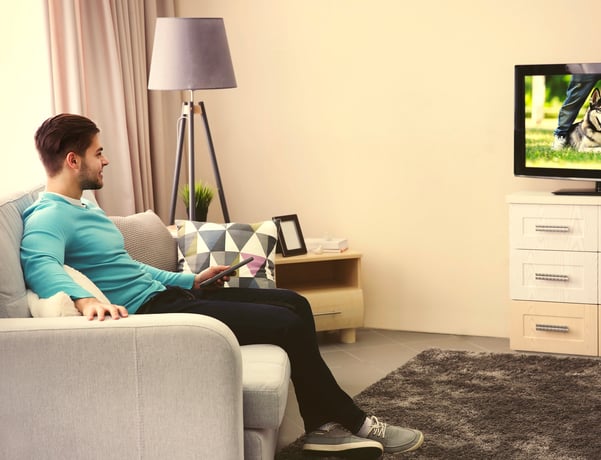From Dickens to "Appointment TV"
How to get students more involved in learning English literature

How can we get students more involved and motivated in learning English literature? The answer is quite simple: giving them voice and choice.
Teachers all around the world complain about the fact that students read fewer and fewer novels. It’s hard to admit, but the natural human need to get to know other people’s life stories has recently passed from novels to movies and, for Generation Z students, mostly to TV drama series. The easy access to dedicated TV channels and services on demand, has even created a sort of addiction to drama series, known as binge-watching. Viewers can’t wait to see the next episode and watch several of them in a row. Anyway, our students probably don’t know that Charles Dickens was a master in the art of keeping the reader glued to the story and looking forward to the next episode.
The great Victorian novelist published his main works in instalments in newspapers in order to reach a wider public at a time when books were still too expensive for many. His novels represented a mirror of the society of his time because he portrayed middle-class values, and he tried to raise awareness about the conditions of the lower classes among his readers. Dickens’ success is also due to his ability to entertain, like a storyteller gathering the whole family around the fireplace. He was in direct contact with his audience and changed his plots according to the feedback received in readers’ letters. This happens today with the creators of drama series following discussions on fan club forums.
What do successful TV series have in common with Dickens’ narrative technique? That’s the challenge students were given: to discover the features inherited from the 19th century’s great novelist.
The class activity in the project was based first on a traditional introduction to the author and his works, using textbook resources and some videos. Students were also invited to read some excerpts from his well-known novel “Oliver Twist”. At this point the students were given voice and choice. The teacher assigned them a task: choose a TV series and and discover the influence of Dickens on todays’ series storytelling in terms of plot and subplots, narrative technique, the setting (everyday life, unreal), social issues and social commitment, presence of cliffhangers, empathy with the characters, flat or rounded characters, plot twists and revelations, debating of social norms and lifestyle, target audience, presence of an audience community and feedback to the author, impact on the audience.
The project represents an example of shift from the passive role of a traditional lesson into active learning by the students. At least four basic key competences of 21st century education are developed:
- Collaboration: students worked in small groups, formed of those with a common interest in a series. They had to work together to create a multimedia project to present to the class. Students were asked to develop their social skills in terms of cooperation, negotiation, and reaching a shared decision.
- Critical thinking: students had to do a web quest to find the necessary relevant information on reliable sites. Surfing the Net requires good skimming and scanning reading competence and the ability to summarise information in a new text and match it to a relevant and evocative image.
- Creativity: students prepared a Google Slide presentation where they not only developed attractive graphics, but also worked on eliciting their schoolmates’ curiosity, to keep the audience’s interest;
- Communication: students presented their project to the rest of the class, endeavouring to use their best communication skills, not only in terms of accuracy and fluency, but also body language and non verbal elements that make their public speaking performance effective.
The final result was surprising: students were really enthusiastic about presenting their project to the rest of the class and the other students were really keen to listen to something which is usually outside the school syllabus. A special rubric was created by the teacher and delivered to the class so that assessment criteria were shared and clear in advance.
The secret formula for keeping students involved in their learning process is to give students voice and choice. In this case the choice was represented by the freedom to choose the topic (TV series) they liked. Making a decision about which drama series to present also means taking responsibility for convincing the audience that its content was particularly relevant. It also helped them to develop their emotional intelligence because they wanted to share the emotions they get watching their favourite drama series with the rest of the class. Students were also given voice. Presenting their project was not simply a matter of practicing their fluency and accuracy, but a public speaking performance where body language and non-verbal elements had a fundamental role.
This project represented an opportunity to develop their digital skills: few hours of school time were dedicated to the project, most of the activity was done at home as Google Drives allows the sharing of work in progress. The projects were collected on Padlet and are now part of their E-portfolio.
The project was a success. They discovered for themselves the genius of Dickens in a new light. Of course, the comparison with the great Victorian author sounded a bit strange at first, but then students discovered that some drama series contain important elements of society and narrative technique they were not aware of through their usual superficial and uncritical way of watching.
Referenze iconografiche: Africa Studio/Shutterstock



